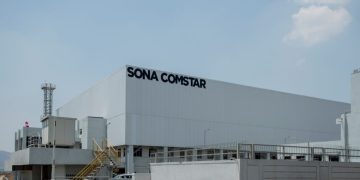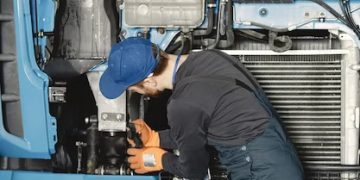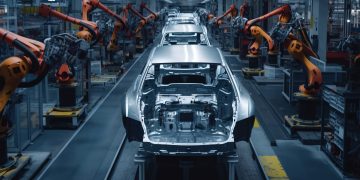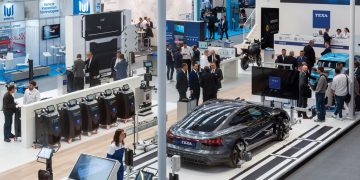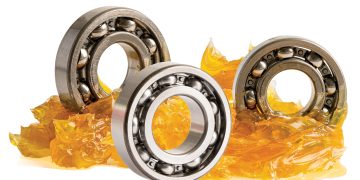Shinnosuke Hayashi, President and COO of DENSO, a top Fortune 500 company focusing on innovative automotive technology, stated the company’s ambitious plan to devote €63 billion (roughly $10 trillion) to research and development over the next ten years during his first public appearance in Europe. This substantial investment aligns with DENSO’s commitment to achieving zero emissions and zero traffic-related fatalities in the realm of mobility and society.
At the IAA Mobility event in Munich, Germany, the newly appointed DENSO President emphasized the broader automotive industry’s responsibility in addressing carbon emissions. He urged the sector to work together to discover cooperative strategies aimed at enhancing overall transportation safety and environmental friendliness. According to Hayashi, companies like DENSO have a moral obligation to safeguard the planet for future generations by developing innovative technologies that address both environmental pollution and road safety concerns.
In order to facilitate the growing transition to electric-powered engines, DENSO has unveiled a substantial investment package. This investment will empower DENSO to develop technologies for electrification and broaden its product range to align with the evolving demands of the mobility industry. The company is increasing its global production capacity and aims to manufacture approximately 12 million inverters annually by 2025. Simultaneously, it is strengthening its capabilities in vehicle semiconductor production and thermal management systems. These advancements in these domains will enhance the functionality and range of electric vehicles, laying the foundation for a future driven by electrification.
During his address, Hayashi reiterated DENSO’s steadfast commitment to taking a leadership role in achieving carbon neutrality within the industry. This commitment comes in the wake of their recent announcement outlining plans to attain carbon neutrality across the entirety of their supply chain by 2050. With the successful achievement of carbon neutrality (with the use of credits) in their facilities in Japan and Europe, the company is making significant progress toward operational carbon neutrality by 2035. Mr. Hayashi also stressed the transformative potential of innovative technologies like carbon capture and recycling, as well as the implementation of Solid Oxide Fuel Cell (SOFC) and Solid Oxide Electrolysis Cell (SOEC) technologies at DENSO’s Japanese facilities. These technologies, which have demonstrated their effectiveness in Asia, are set to be introduced to various European facilities in the near future.
Shinnosuke Hayashi, the President and COO of DENSO, expressed, “Throughout history, humanity has come together to confront significant challenges. In the face of one of the most significant challenges our planet has ever encountered, it is crucial for organizations like DENSO to collaborate and work in harmony with partners worldwide to address the issues affecting our world. We believe that the field of mobility plays a crucial role in this journey, and we aspire to lead the industry in developing innovative technologies and solutions to promote safe and valuable mobility and manufacturing. We are making substantial progress in our own manufacturing endeavors, and through these efforts, we aim to inspire the entire industry to follow suit, ultimately benefiting society in the medium and long term.”
Hayashi also spoke about his personal experience within the DENSO organization and how it has influenced his vision for the company. He began his journey at DENSO as an engineer in 1986, where he was involved in the development, mass production, and global expansion of the engine ECU for the world’s first fully electronic control diesel common rail system.
Over the course of a 37-year career, he has progressed through various positions within the company, leaving a significant mark on the broader DENSO Group. In 2015, he assumed the role of Executive Director at DENSO Corporation. In this capacity, he supervised the creation of an integrated electronics platform for controlling the entire vehicle system and took a prominent role in driving business transformation and devising plans for new products in the field of mobility electronics.
He was promoted to Senior Executive Officer at DENSO Corporation in 2020, a year after taking up the role of Chief Software Officer. Subsequently, just a year later, he was designated as the leader of the Mobility Electronics Business Group. During this time, he has earned recognition for his efforts in implementing comprehensive company-wide changes and is a dedicated supporter of the incorporation of software into DENSO’s array of products and solutions.
About DENSO Europe
DENSO is a global mobility supplier with a substantial €44.3 billion ($47.9 billion) in revenue. The company specializes in the development of advanced technologies and components that cater to a wide range of vehicles currently in use. With manufacturing at its core, DENSO invests in approximately 200 facilities to produce components for electrification, powertrains, thermal systems, mobility electronics, and advanced devices, contributing to job creation and reshaping the way the world moves.
DENSO, with a workforce of approximately 165,000 employees, is at the forefront of driving advancements in mobility. Their vision includes enhancing the quality of life, reducing traffic accidents, and preserving the environment. The company’s global headquarters is located in Kariya, Japan, and in the fiscal year ending March 31, 2023, DENSO allocated around 9.0 percent of its global consolidated sales to research and development.
In Europe, DENSO’s regional headquarters is based in Amsterdam, the Netherlands. DENSO operates 27 official group companies across 14 European countries, employing nearly 15,000 individuals throughout its European organization. For the fiscal year ending March 31, 2023, DENSO Europe reported consolidated revenue of €4.7 billion ($5.1 billion).



































